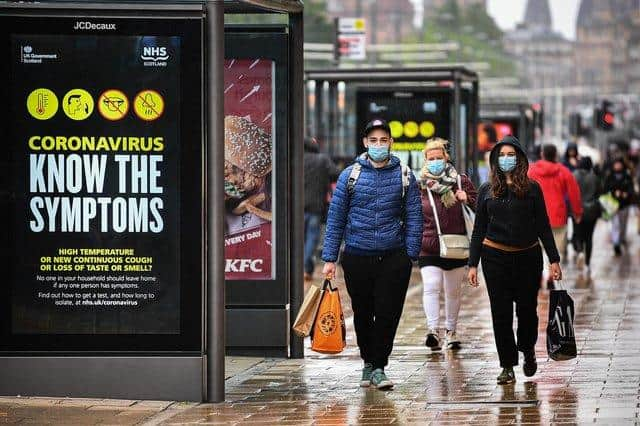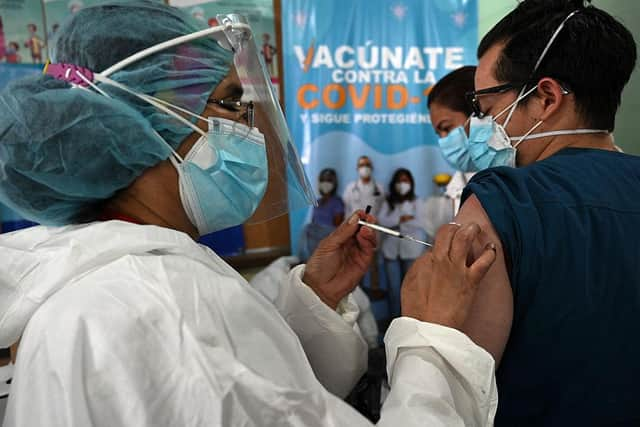Covid: Scottish scientists urge UK Government to end 'shameful' stance on vaccinating poorer countries
In an open letter scientists from across the UK called on the Prime Minister to support a temporary waiver of intellectual property rights which would allow poorer countries to develop vaccines, tests and treatments for Covid-19.
They also ask the UK Government to use its influence to pressure pharmaceutical companies into sharing their expertise with the World Health Organisation’s technology access pool.
Advertisement
Hide AdAdvertisement
Hide AdThe letter was signed by more than 300 scientists, academics and public health experts, including from St Andrews, Edinburgh, Glasgow, Dundee and Stirling universities.


Allowing large numbers of people in low and middle-income countries to remain unvaccinated is a “reckless approach to public health”, the letter states, due to the risk of new variants.
Stephen Reicher, professor of social psychology at St Andrews University and a signatory to the letter, said the existing approach was “shameful”.
He said: “If you look at low-income countries, it's a little more than 5 per cent of people who are vaccinated. That leads to massive loss of life and damage to life, and it also creates reservoirs where the virus can circulate, replicate, mutate and can come back to haunt us.


“It's both a moral issue and an issue of self-interest to say we need to vaccinate the world.”
The temporary waiver is supported by Russia, China, the US and the Pope, Prof Reicher said, adding: “Britain stands as one of the few countries that does not and it is scandalous, we are stopping people producing their own vaccine.
“The problem is that people occasionally talk about the rest of the world, but as soon as we've got a crisis at home we become terribly parochial, and all we talk about in all our measures is what we're going to do here.
“That's not good enough, if we want a programme to deal with Covid it’s got to be a global programme.
Advertisement
Hide AdAdvertisement
Hide Ad“I think it's quite shameful that Britain is one of the few countries in the world which is standing out against vaccine patent waivers.”
The Scottish Government has also called on the UK Government to support a vaccine patent waiver under the Trade-Related Aspects of Intellectual Property Rights (TRIPS) agreement.
In a letter to Boris Johnson in December, Nicola Sturgeon wrote: “Ensuring equitable access to vaccine supplies is essential to ensuring as many people as possible are protected, as quickly as possible.
"The exceptional circumstances presented by the Covid-19 pandemic call for all available measures to be used in order to end this crisis.”
She added: “I urge the UK Government to end its opposition at the WTO [World Trade Organisation] and to join over 100 countries who are now supportive of a temporary TRIPS waiver.”
A spokesperson for the UK Government said: “The UK is working to ensure developing countries can access Covid-19 vaccines.
"Our significant early commitment to COVAX has already helped to deliver more than one billion doses to developing countries, while we continue to donate our own domestic surplus.
“We recognise and share concerns regarding the level of vaccination in some parts of the world, and we are working on tackling the underlying issues including manufacturing and supply constraints, pressure on health systems, and vaccine confidence.”
A message from the Editor:
Thank you for reading this article. We're more reliant on your support than ever as the shift in consumer habits brought about by coronavirus impacts our advertisers.
If you haven't already, please consider supporting our trusted, fact-checked journalism by taking out a digital subscription.
Comments
Want to join the conversation? Please or to comment on this article.
